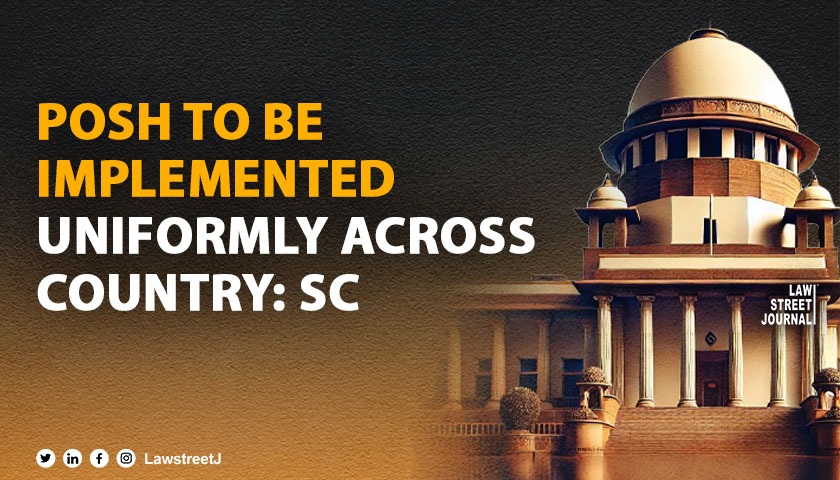NEW DELHI: The Supreme Court on Tuesday said that provisions of the POSH Act must be uniformly implemented across states and UTs, as it issued fresh detailed directions to ensure its effective compliance in order to redress grievances of women at their workplace.
A bench of Justices B V Nagarathna and N Kotiswar Singh raised the issue of the importance of pan-India compliance of the provisions of the Sexual Harassment of Women at Workplace (Prevention, Prohibition and Redressal) Act, 2013 (POSH Act).
Unlimited access to all contents of Lawstreet
Most reliable, quick and growing only with subscriber support.















